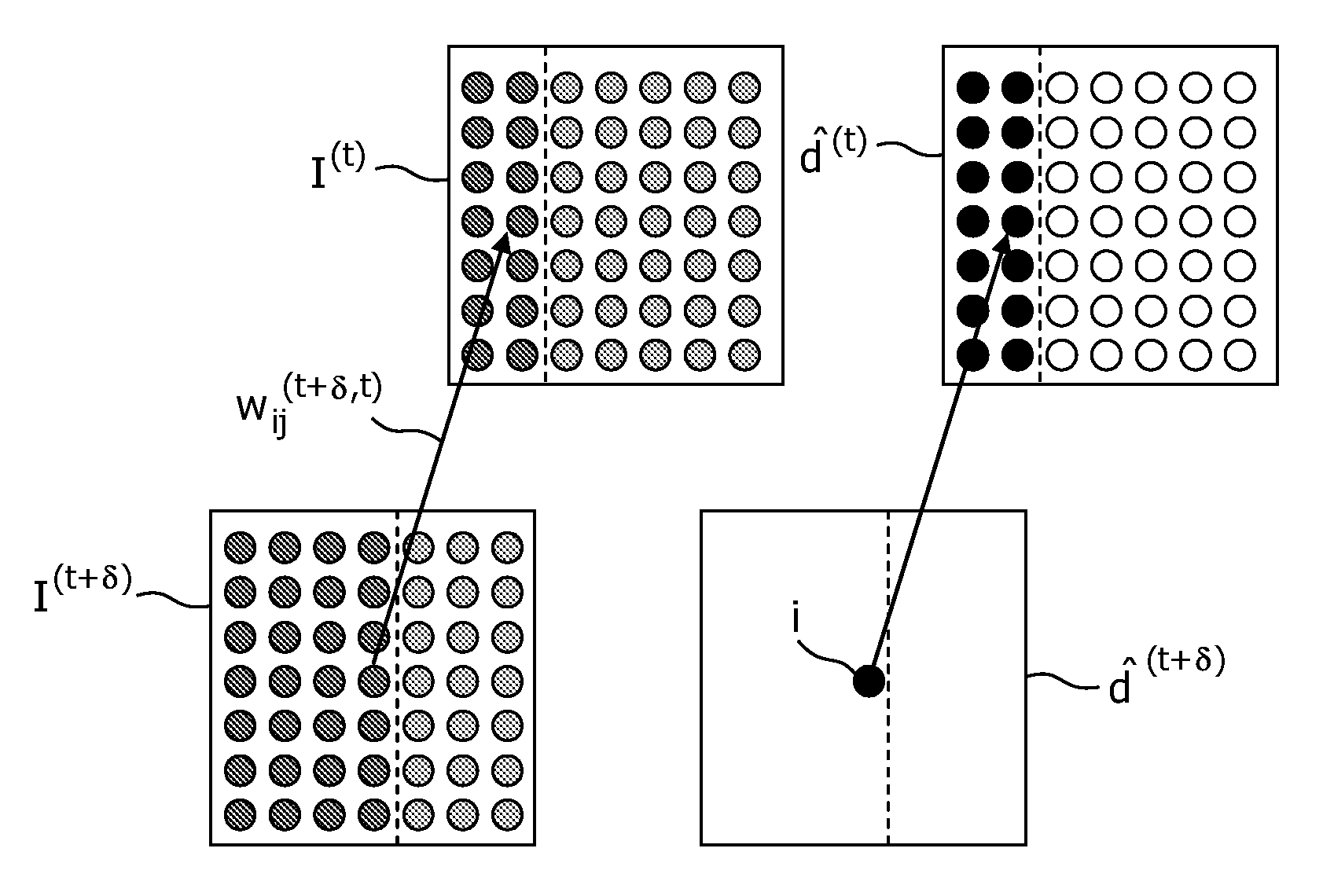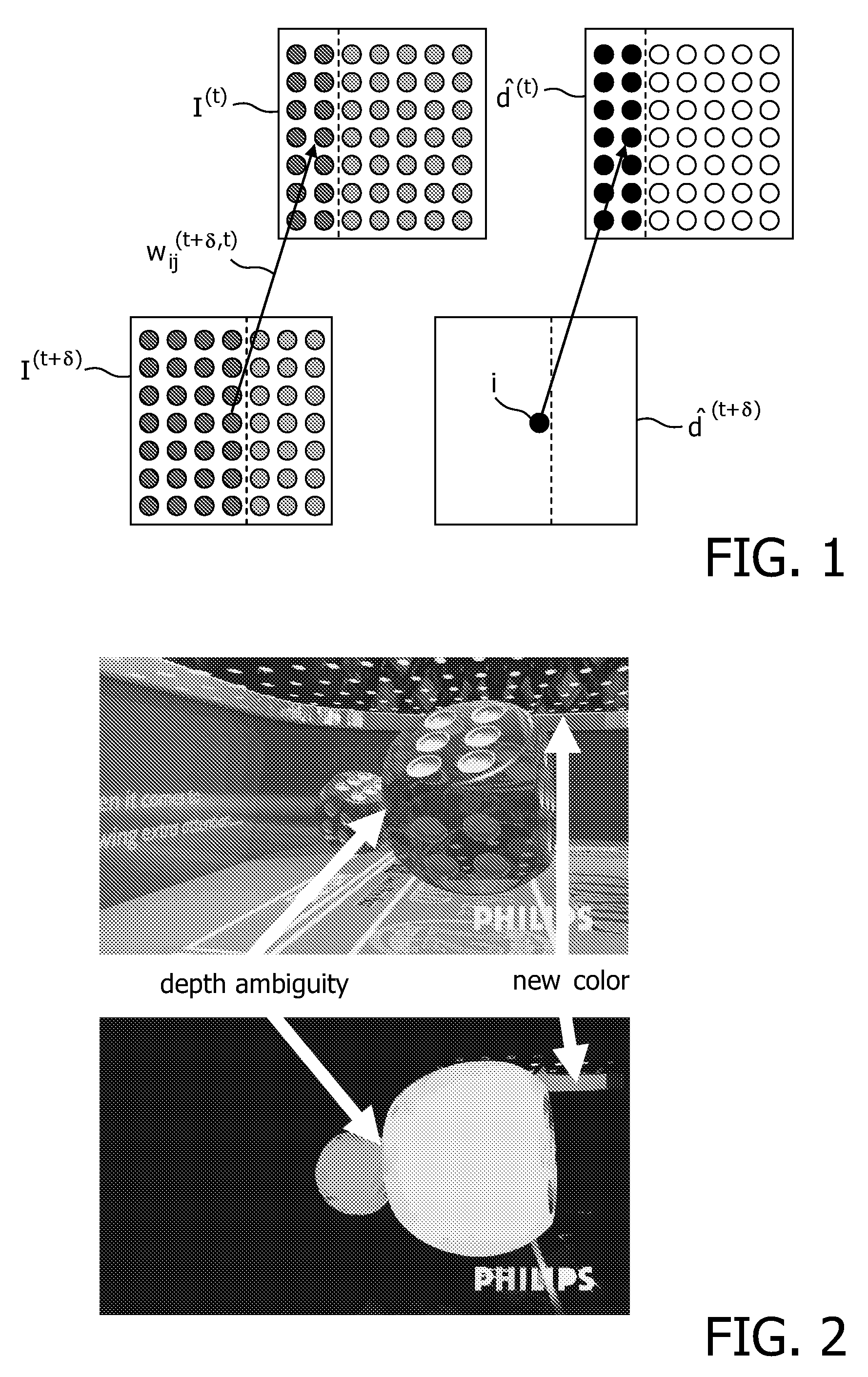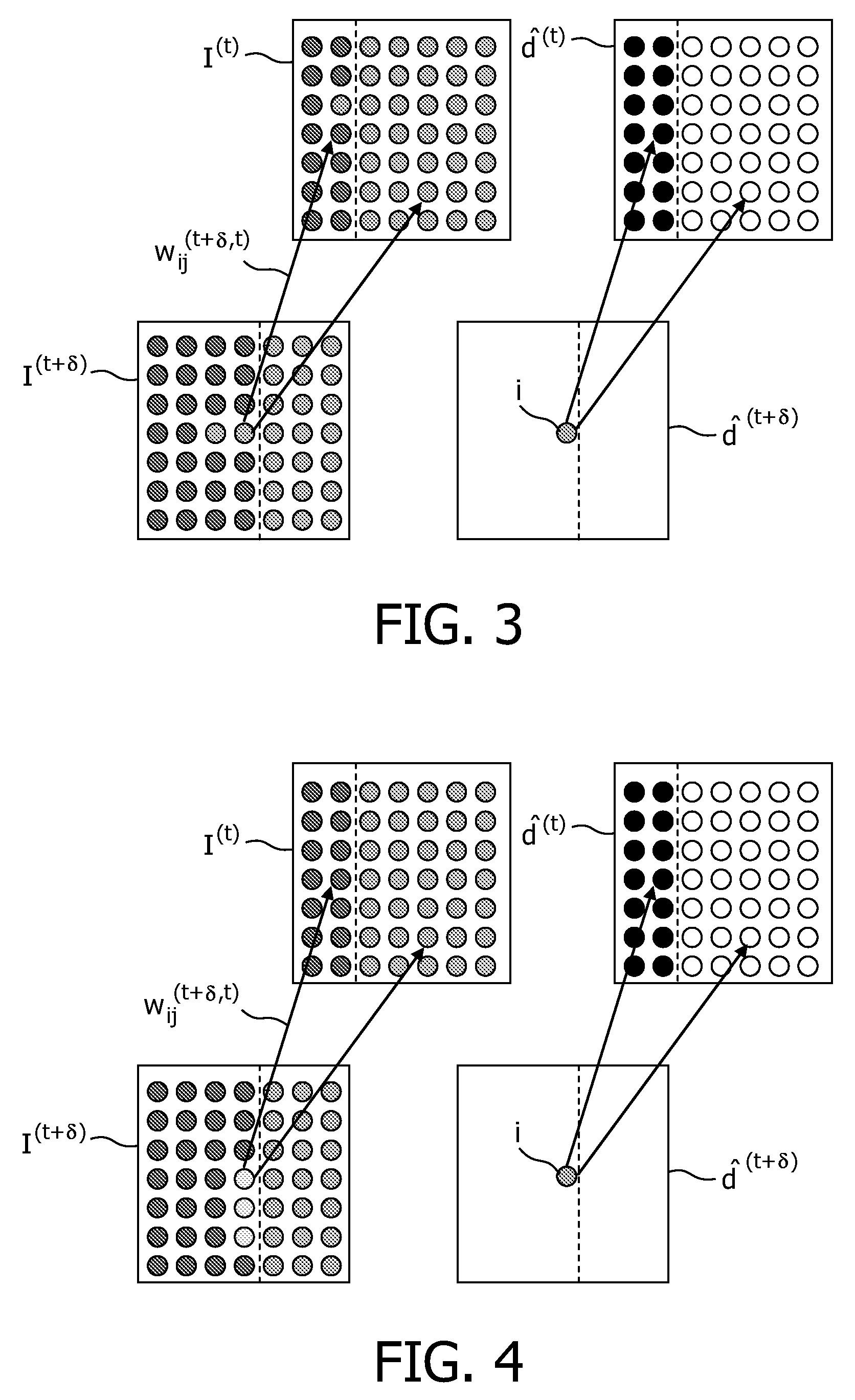Method and apparatus for depth-related information propagation
a technology of depth-related information and propagation method, which is applied in the field of depth-related information propagation method and apparatus, can solve problems such as difficulty in handling objects with similar texture information located at different depths
- Summary
- Abstract
- Description
- Claims
- Application Information
AI Technical Summary
Benefits of technology
Problems solved by technology
Method used
Image
Examples
Embodiment Construction
[0039]When performing a semi-automated 2D to 3D content conversion, i.e. content conversion that is human-assisted, the conversion process may be influenced by errors produced by automated extrapolation routines that are used to propagate depth values to non key-frames. One method applied by the present inventor to automate propagation of depth values to non key-frames uses bilateral filtering. Bilateral filters were originally developed for edge-preserving smoothing of images as disclosed in “Bilateral filtering for Gray and Color Images” by C. Tomasi et al, published in Proceedings of the International Conference on Computer Vision, 1998, hereby incorporated by reference.
[0040]The inventor has found that bilateral filters are very effective for propagating depth values from a key-frame to further images in an image sequence. In order to propagate depth related information, the bilateral filter is applied recursively to subsequent image pairs. For the above reason, bilateral filter...
PUM
 Login to View More
Login to View More Abstract
Description
Claims
Application Information
 Login to View More
Login to View More - R&D
- Intellectual Property
- Life Sciences
- Materials
- Tech Scout
- Unparalleled Data Quality
- Higher Quality Content
- 60% Fewer Hallucinations
Browse by: Latest US Patents, China's latest patents, Technical Efficacy Thesaurus, Application Domain, Technology Topic, Popular Technical Reports.
© 2025 PatSnap. All rights reserved.Legal|Privacy policy|Modern Slavery Act Transparency Statement|Sitemap|About US| Contact US: help@patsnap.com



